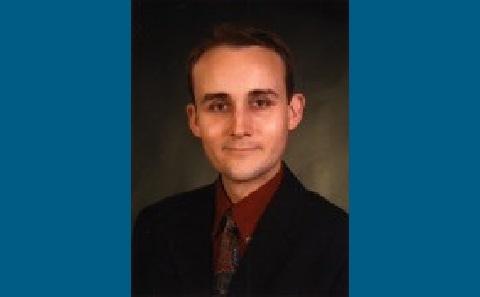Klaus Pietschmann Seminar

- Time:
- 12:00 - 17:00
- Date:
- 26 - 27 April 2016
- Venue:
- Building 6 Room 1077 University of Southampton Highfield Campus Southampton SO17 1BJ
For more information regarding this seminar, please email Kate Guthrie at K.M.Guthrie@soton.ac.uk .
Event details
The Music Department welcomes Klaus Pietschmann to present his research and preside over a variety of seminars, workshops and presentations, as part of the Hartley Residency Program.
Schedule
Tuesday 26 April 2016
12:00-13:30 Introductory seminar for post-graduate students: "The Mass around 1500"
16:00-17:30 Formal presentation: Klaus Pietschmann (Johannes Gutenberg-Universitaet, Mainz) “Heavenly and Earthly Pleasures: Modes and functions of perceiving sacred music in the 15th and 16th centuries”
The formal presentation on the Tuesday afternoon will be followed by a wine reception in the Arlott Bar, to which all are welcome.
Wednesday 27 April 2016
10:00-12:00 One-to-one meetings (please contact Dr Kate Guthrie for a slot)
14:00-15:30 Formal presentation: Laurie Stras (University of Southampton) “Meditative music in the early sixteenth-century convent: The case of Musica… motetta materna lingua vocata”
16:00-17:00 Departmental roundtable:
Position Paper (Klaus Pietschmann): “Mechanisms of canonization in 18th and early 19th century opera repertoire”
Panelists: Mark Everist, laurie Stras, Klaus Pietschmann
Chair: Kate Guthrie
Information and Abstracts
Introductory seminar for post-graduate students: “The Mass around 1500”
Tuesday 26 April 2016, 12:00-13:30
The seminar will investigate a selection of musical works, assessing their impact on the contemporaneous listener. Mass settings by Josquin (Missa Pange lingua) and Brumel (Missa Victimae paschali laudes, Missa Et ecce terrae motus) will serve as our examples to identify the various compositional, intertextual, and symbolic tools available to composers around 1500 for the purpose of inscribing additional semantic layers onto the text of the Mass Ordinary. One focus will be on the internal “dramaturgy” of the Mass, e.g., the Hosanna representing the celestial song of the angels, or the Benedictus sounding simultaneously with the elevation of the Host, the most central moment within the Mass liturgy. To what extent, if any, did composers take account of these actions? A second set of questions concerns the ways in which settings composed for a particular event or institution reflect the expectations of the relevant listeners, such as their cultural backgrounds or their intentions as patrons. The music sung by the chapel of the papal palace (the so-called Cappella Sistina) will be the primary focus of our inquiry.
Formal Presentation (Klaus Pietschmann): “Heavenly and Earthly Pleasures: Modes and functions of perceiving sacred music in the 15th and 16th centuries”
Tuesday 26 April 2016, 16:00-17:30
This lecture will concentrate on different attitudes towards the spiritual potential of liturgical polyphony in the context of the Catholic reform movement. Departing from the autobiography of the 15th-century composer Johann von Soest, who describes his first experience with sacred polyphony as a transcendental revelation (similar to well known descriptions by Italian authors like Giannozzo Manetti), the theological concept of the inner senses and the transformation of the senses in the hereafter will be discussed with reference to texts by authors such as Celso Maffei and Bartolomeo Rimbertini. These documents clearly show that sacred polyphony was primarily understood and valued as a representation of angelic singing and as such formed an important part of the devotional practices of the elite. In sharp contrast to these concepts the growing criticisms expressed by reformers like Girolamo Savonarola denied this representational quality of sacred polyphony and favoured “active” singing and listening: the claim for intelligibility and abandonment of lascivious elements will be interpreted as a changing attitude towards the perception of sacred music which strengthens active listening and redefines the sensual impact of liturgical music. I will focus on one particularly important example representative of this changing attitude: Prudencio de Sandoval’s description of Emperor Charles V listening to sacred polyphony.
Departmental Roundtable: “Mechanisms of canonization in 18th and early 19th century opera repertoire”
Wednesday 27 April 2016, 16:00-17:00
The construction of repertoires and the birth of a “canon” of paradigmatic works is one of the central issues in 18th and early 19th century music history. The position paper will investigate two cases drawn from the theatrical sphere. As a starting point will serve the canonization of Lully’s tragédies en musique in 18th century Paris and especially his Armide, which in Gluck’s “rescoring” (1777) underwent a significant transformation process. Gluck’s opera then will be examined in its 1808 Viennese production, which was part of Gluck’s canonization in the German speaking countries and his intended transformation to a founder of German opera.
Speaker information
Klaus Pietschmann, Johannes Gutenberg-Universitaet Mainz. Professoral of Musicology
Laurie Stras,Professor of Music